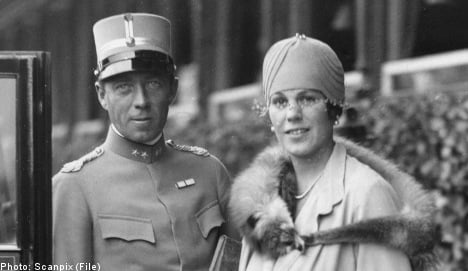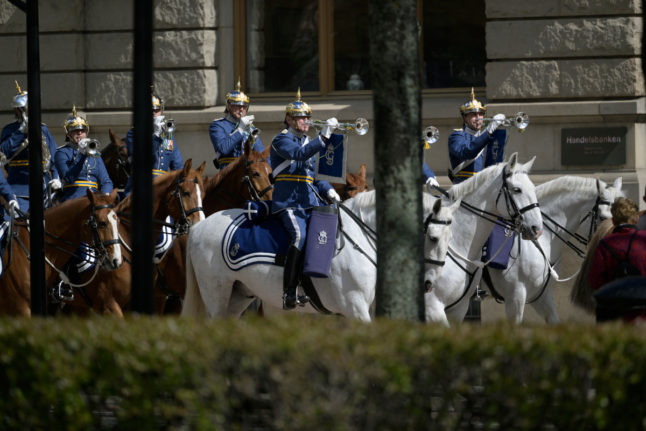Everyone was surprised over this name – Estelle. No Swedish princess in history has ever had that name.
But there was another Estelle Bernadotte in the past. She was married to Folke Bernadotte, who was King Carl Gustaf’s godfather.
Folke Bernadotte was assassinated in Jerusalem in 1948 while on a mission for the United Nations.
Many circumstances surrounding the murder remain unexplained. No one has been held accountable for it, despite the fact that it quickly became apparent who was behind it.
One of them was named Yitzak Shamir, who later became Israel’s prime minister.
Swedish authorities and the Swedish public were very unhappy with how the Israelis managed the murder investigation.
The government even had a diplomat visit to Tel Aviv and express suspicions that the Israeli government was involved.
But after various diplomatic moves, all suspicions of dirty tricks were swept under the rug and the murder of Folke Bernadotte was forgotten.
To name the little princess Estelle is a political statement from the Royal Family.
It is widely known that the King and Queen are dissatisfied with how Swedish authorities have handled the case of Folke Bernadotte.
And the royal couple has never visited Israel.
Once upon a time, the Israeli government solemnly promised to continue the search for the murderers, but nothing happened, despite the fact that the perpetrators came forward a few decades later and admitted what they did.
And Swedish governments since 1950, when the case was buried, have never asked how the search was progressing
Not only was the assassination of Bernadotte neglected, but his legacy has been soiled by various campaigns against him.
In his mediation work, he tried to achieve a reasonably fair solution to the question of how Jews and Palestinians could live together in Palestine.
As a result, he was widely hated in Israel; a whispering campaign was started claiming he was an anti-Semite, and so on.
Consequently, he has also come under suspicion in Sweden.
His efforts to rescue Nazi concentration camp inmates in 1945 with the “White Buses” are reasonably well known, but few people know anything about the magnificent work he did in Palestine and if one knows anything, one has the idea that he was well meaning, but not so smart and did not understand quite what he was doing.
When Israel’s President Herzog visited Sweden the royals wanted say something pointed about Folke Bernadotte, but the foreign ministry wouldn’t allow it.
It is not unreasonable to interpret the Royal Family’s choice of name for Sweden’s new princess is an attempt to contribute to the restoration of the Folke Bernadotte’s legacy.
It is not known what name they had in store had Victoria and Daniel had a little boy – Folke is a good guess.
Göran Burén is an author who has recently published a book about Folke Bernadotte.
This article was originally published in Swedish on the Newsmill opinion website. English translation by The Local



 Please whitelist us to continue reading.
Please whitelist us to continue reading.
Member comments